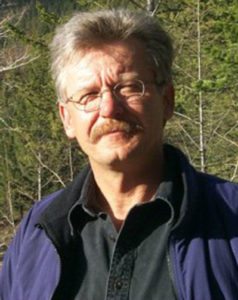Home »

We wanted conservation, we got environmentalism
By Peter Christensen
Op-Ed Commentary
It’s difficult these days to differentiate between NGO organizations that have a single purpose and organizations that take advantage of NGO status by mixing environmentalisms’ talking points with ideologies and political ambitions.
The first serve community need or set up to help troubled and less fortunate people. The latter deliberately intermingle our care for nature with dogma. These ‘true believers’ believe their principles are indisputable and authority is their due.
They set themselves up to mirror government ministries, have motivational names and send out press releases that comment on government programs in a tone that suggests that they have given permission for government to act. It is a much-abused strategy of ideologues.
Unlike actual scientists who earn the respect of their peers and present reasoned and documented evidence to decision-makers and convince them to act for the public good, ideologues believe change comes through activism. They have little time for democratic process and portray themselves as heroes.
We can’t eliminate this phenomenon of non-reality-based ‘true believers’ taking up “environmentalism” and mixing it with ideological agendas. However, one can step back and look at how this imagined authority is displayed, how it came about and what is its’ intent.
Environmentalism like other isms, is first about power and celebrity and second about subject. Eco-cults continue to emerge and stage emotional scenarios intended to scare the public and influence decision-makers.
During the 1960s and ‘70s many Americans, young and old, in protest against the legacy of French Indochina colonialism in Vietnam turned proxy war between Communism and the United States immigrated to Canada.
Estimates are high, approximately 140,000 potential conscripts and conscientious objectors came to Canada. They had lost faith in the right or wrong of Cold War played out in foreign lands and were disillusioned with US culture as witnessed by the civil unrest of those heady days. Activists, draft evaders, deserters, agitators and conscientious objectors did not feel safe in the US and fled. Coincidentally, many American intellectuals found employment at new Canadian universities being built at the time.
A student of American influence, Madeleine de Trenqualye in Spacing Vancouver Canadian Urbanism Uncovered, Vietnam War Resistance in Vancouver, APRIL 25, 2016 said, “Many draft resisters were highly educated and became involved in teaching, municipal politics and union activism. By the 1970s, there’s a feeling that wait a second, there’s all these Americans coming – why aren’t they staying in the US and fighting the American government from there? Why are they coming here, why are they teaching in our universities, why are they teaching in our school systems?”’
Many new immigrants tried to understand their adopted country’s culture and fit in. Others escaped into the ‘back to the land’ movement. Ironically for Canadians it was not a matter of going back to something as much as it was a way to get started.
On a more local scale during the late ‘60s and early ‘70s, there were 49 teepees set up on the Findlay Creek benches west of Canal Flats occupied by Americans fleeing possible conscription. Most had home support.
Life Magazine had published a special issue with the pictures of 250 young Americans killed in Vietnam in one month. Families did not want to see their sons come home in a body bag. These ‘refugees’ camped out in a pot fuelled republican Davey Crocket and Hiawatha ‘leather and feathers’ haze while waiting to see what would happen next.
They organized a Columbia Valley Rock Festival near the Canal Flats, they hung out at the old National Hotel beer parlour in Radium Hot Springs or the Slough in the Flats, they grasped at made-up communal animistic spirituality.
The US ended involvement in the Vietnam War in 1973; the war came to an end in 1975 when the North Vietnamese took control of South Vietnam. In 1974, Draft Evaders (Draft Dodgers) as they are now called, could return to the US, do two years of community service and receive amnesty. In 1977 President Jimmy Carter offered pardons.
Thousands of the estimated 140,000 Americans who migrated to Canada as war resisters seeking political asylum returned home. Many did not because of family differences of opinion over allegiance or because they were discouraged with US culture and its countless internal conflicts.
Deserters, activists and agitators did not return because they were wanted or unwanted and did not trust the amnesty. Nearly all who stayed retained their American citizenship living in Canada as permanent residents thereby keeping their options open for dual citizenship for themselves and their children.
Looking back, one wonders what impact these motivated American immigrants had on Canadian society?
American activists and agitators found themselves adrift in Canada. They did not understand our less boastful Canadian culture, they did not understand Canada’s constitutional federal structure and Westminster-style parliamentary democracy.
Having tasted the dopamine rush of protest and advocacy they saw themselves as having “discovered” a new and rather backward land that needed to be saved from itself through activism. It needed to be made into a republic, to be Americanized.
What was needed to make this a reality was a cause. In B.C., the ‘War in the Woods’ was brewing… the notion that ideologically driven activism could save nature was the perfect vehicle to provoke uprising.
The legacy of American style activism and strategic lobbying is still with us.
Uncompromising in their ideologically driven campaigns activists and agitators strive to derail the tradition of Canada’s political parties to compromise and form coalitions from within to govern. Their agenda is to usurp the power of elected representatives and lessen the public’s commitment to hold political representatives responsible for their actions.
– Peter Christensen is a Columbia Valley based writer and poet.








